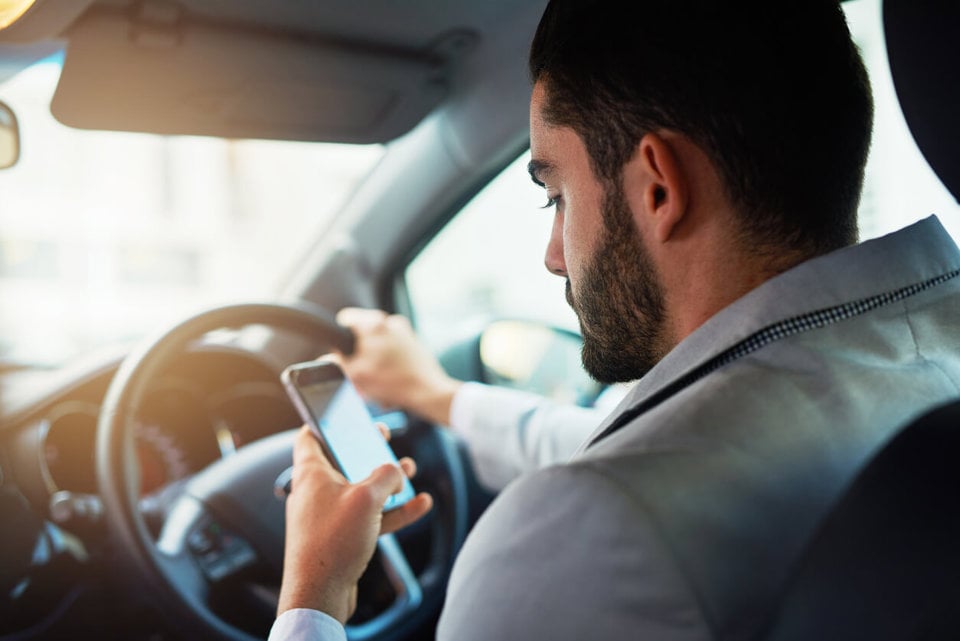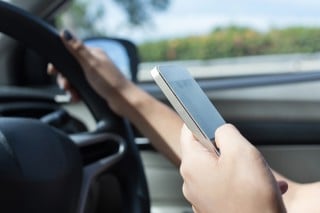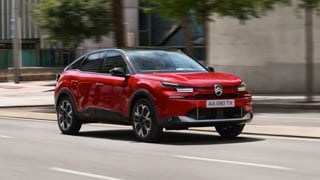The Government will tighten the rules on the use of mobile phones making it illegal to use a hand-held device under virtually any circumstance while driving.
It is already illegal to text or make a phone call (other than in an emergency) using a hand-held device while driving.
Next year, new rules will be introduced to ban drivers from using their phones to take photos or videos, scroll through playlists or play games.
Anyone caught using their hand-held device while driving will face a £200 fixed penalty notice and six points on their licence.
The Government says that drivers will still be able to continue using a device ‘hands-free’ while driving, such as a sat-nav, if it’s secured in a cradle.
However, if police deem that they are not to be in proper control of their vehicle they can be charged with careless driving.
Transport secretary Grant Shapps says that too many deaths and injuries occur while mobile phones are being held.
“By making it easier to prosecute people illegally using their phone at the wheel, we are ensuring the law is brought into the 21st century while further protecting all road users,” he said.
“While our roads remain among the safest in the world, we will continue working tirelessly to make them safer.”
The Government launched a consultation on mobile phone use while driving in October 2020 to close a loophole in the original law.
Existing legislation had made it a criminal offence to use a hand-held mobile phone to call or text while driving, but not for other actions such as taking photos.
The law said that an offence is committed if a driver uses a handheld mobile phone for “interactive telecommunication” while behind the wheel.
The phrase reflected how, when the law was written in 2003, smartphones were not in existence and mobile devices were used for sending texts or making calls.
It has enabled lawyers to successfully argue that using a phone’s camera while driving does not constitute “interactive telecommunication”.
It was brought to a head in 2019, when the Director of Public Prosecutions lodged an appeal with the High Court after Ramsey Barreto had a conviction quashed for filming a crash on his mobile phone.
The 51-year-old was prosecuted and found guilty after police saw him driving past an accident using his phone to make a video. However, he had the conviction overturned at Isleworth Crown Court, after his lawyers successfully argued that the law only banned the use of mobile phones to speak or communicate while behind the wheel.
Publishing its decision in July 2019, the High Court dismissed the appeal, agreeing with Barreto’s lawyers.
Mary Williams, chief executive of Brake, said: “Driver distraction can be deadly and using a hand-held phone at the wheel is never worth the risk. This important road safety decision by Government, coinciding with Road Safety Week, is very welcomed.
“This news is particularly welcomed by families suffering bereavement and catastrophic injury due to drivers being distracted by phones.”
The Government consultation found 81% of respondents supported proposals to strengthen the law and make it easier for culprits to be prosecuted.
Paul Loughlin, a solicitor specialising in motoring law at Stephensons, said: “As phones have become more popular and developed new functions we have seen related offences increase in number as well as seriousness. This announcement will be welcome news for many and goes some way toward making our roads a safer place for all road users.
“The way people have used phones has changed as phones have become more and more advanced and for the sake of road safety, it is about time the law was modernised to reflect this.
“As ever, the challenge will come back to both education and enforcement. Many drivers have ingrained habits when behind the wheel and unfortunately some don’t hesitate to check their phones, often below the line of sight for any passing police officer to notice.
“While this legislation will certainly act as a greater deterrent, it is important that we now see a sustained effort to educate drivers of this change as well as tough enforcement from the police.”
The Government will now revise The Highway Code to explain the new measures. It will also be more precise about the fact that being stationary in traffic counts as driving, making it clear that hand-held mobile phone use at traffic lights or in motorway jams is illegal except in very limited circumstances.
There will be an exemption to the new law for drivers making a contactless payment using their mobile phone while stationary to ensure the law keeps pace with technology.
This exemption will cover, for example, places like a drive-through restaurant or a road toll and will only apply when payment is being made with a card reader. It will not allow motorists to make general online payments while driving.
Among other findings, the research revealed younger motorists are more likely to have used a hand-held device at the wheel.
























Login to comment
Comments
No comments have been made yet.